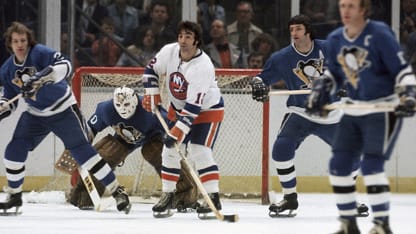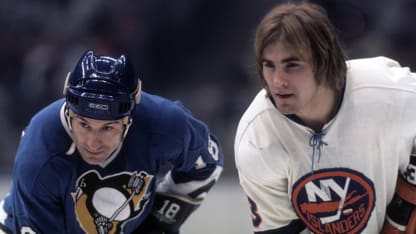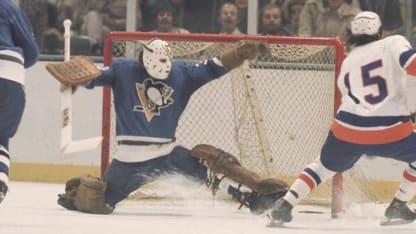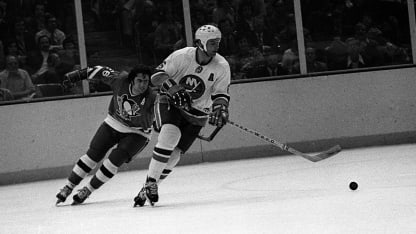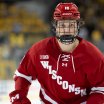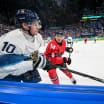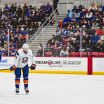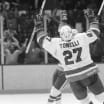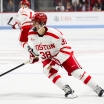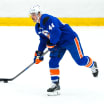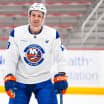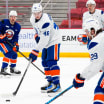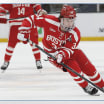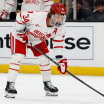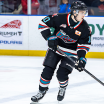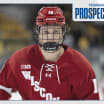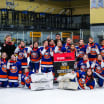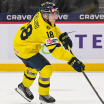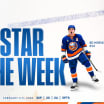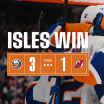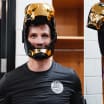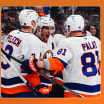"When the puck came around the boards," Marshall recalled, "I moved up from the point. Meanwhile, one of Pittsburgh's forwards tried to control the bouncing puck but it got away from him and I intercepted it on my forehand and move on the offensive."
Westfall, who had been forechecking in the corner awaiting Marshall's next move, skated into better scoring position. "When I saw him with the puck, I thought that this was not where I expected to see a defensive defenseman like Bert," the Captain remembered.
"I yelled, 'Hey, Bert, look at me.' Now I was all alone in the slot trying to figure what my teammate planned to do; hoping, of course, for the best."
Marshall had a split second to make one of two moves: 1. Take a shot -- even though his drives were usually weak -- or; 2. Pass the rubber to his Captain.
"I had the puck on my forehand and planned to shoot," Marshall went on, "but then I saw Eddie out of the corner of my eye. One of their defenseman was on me so I faked a shot, slid it by the guy to 18 who had his stick down. My pass was right on Eddie's stick."
The puck slid flat -- looking fat to the waiting Westfall -- and arrived on the Captain's backhand. A seasoned pro such as Westfall instinctively knew that the backhand always was -- and is -- the most deceptive shot in a sniper's arsenal.
Westfall: "I knew I had a scoring chance and I told myself in that split-second, 'Don't hesitate. Get it on the net. Don't blow this chance.'"
Crouched in his crease, Inness was thinking along those lines except he needed the save, badly. "What could I do?" the Penguins goalie wondered in retrospect. "Westfall kept moving in from the side. I stayed where I was as long as I could, then I had to move with him.
"He wasn't panicking, partly because there was nobody there to check him," Inness said. "He held it and held it; so I moved to my right and he put the shot whereI had been."
The backhander flew high enough to clear the goalie's left shoulder and low enough to clear the crossbar. There were only 5:18 remaining in the third period when the red light flashed.
From that point until the final buzzer sounded, the Penguins failed to get a single shot on Resch. "We wound up winning it, one-zip," Westfall concluded, "on my goal. Who would have thought it possible?"
Frankly, nobody thought it was possible when the Isles were down three games; except the Captain and his corps of believers.
Westfall: "I have said that any of us could have scored that goal but I happened to be the lucky one. The thing to remember is that the goal represented the Islanders."
And one heck of a historic comeback.
